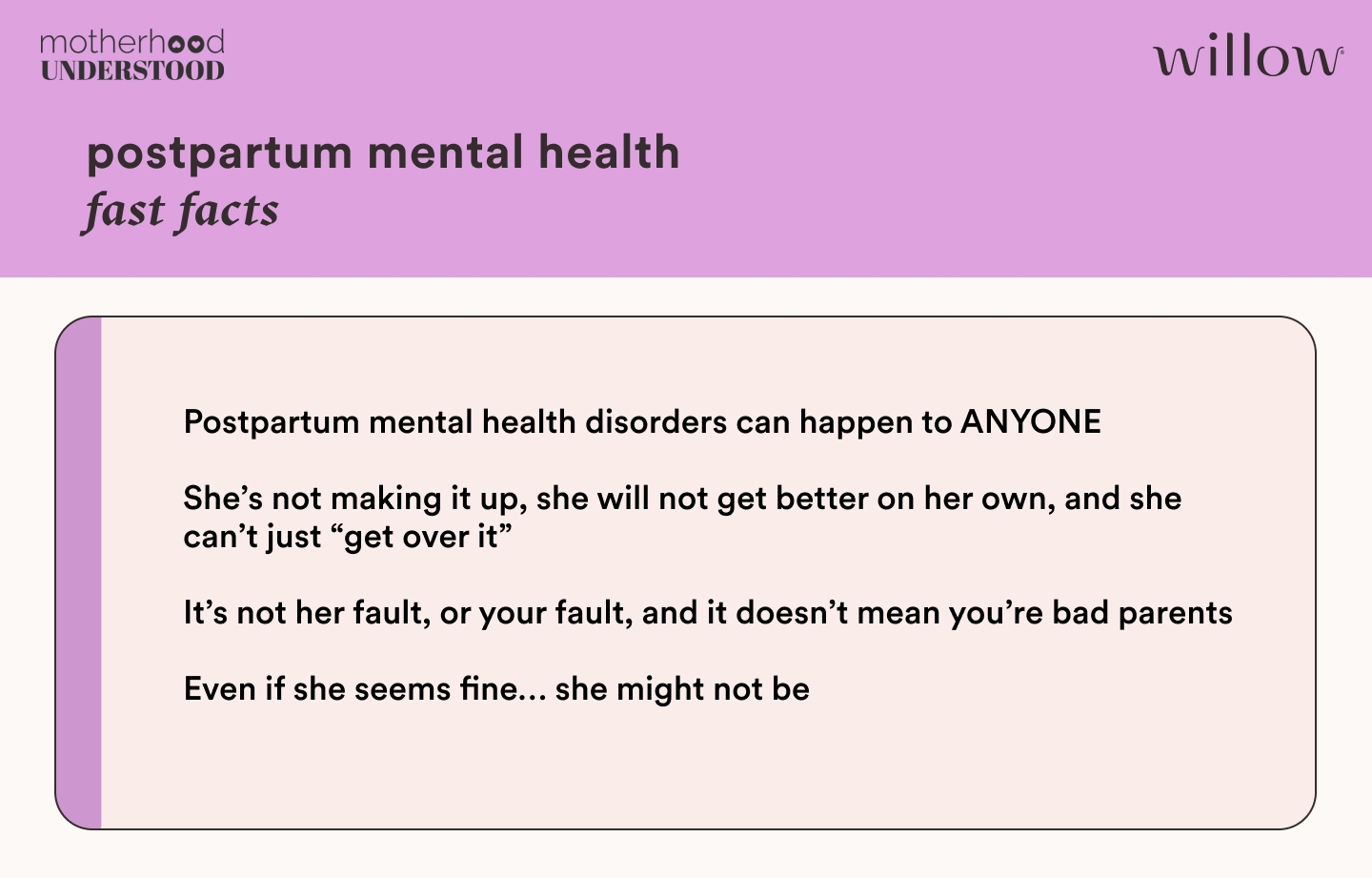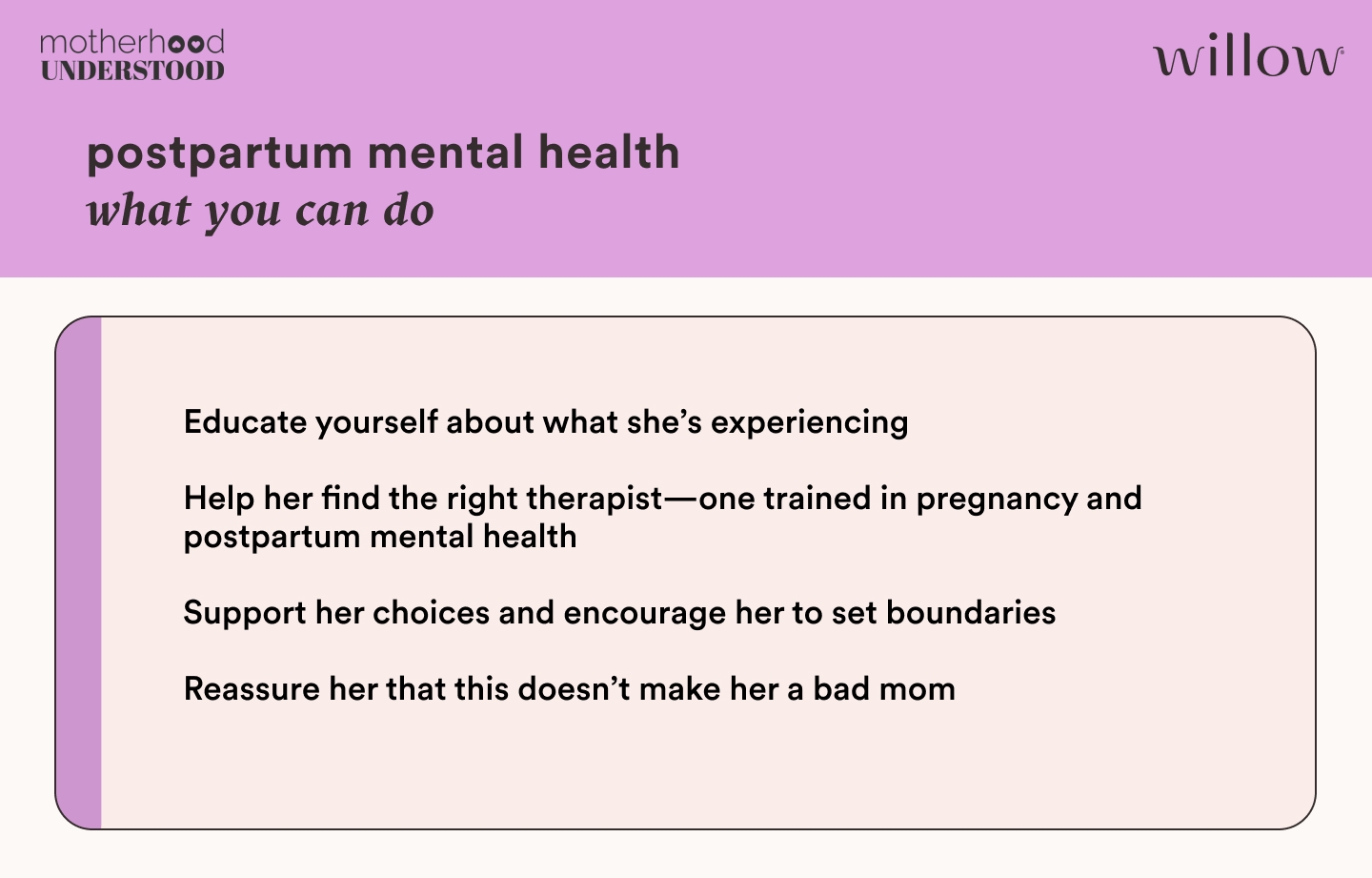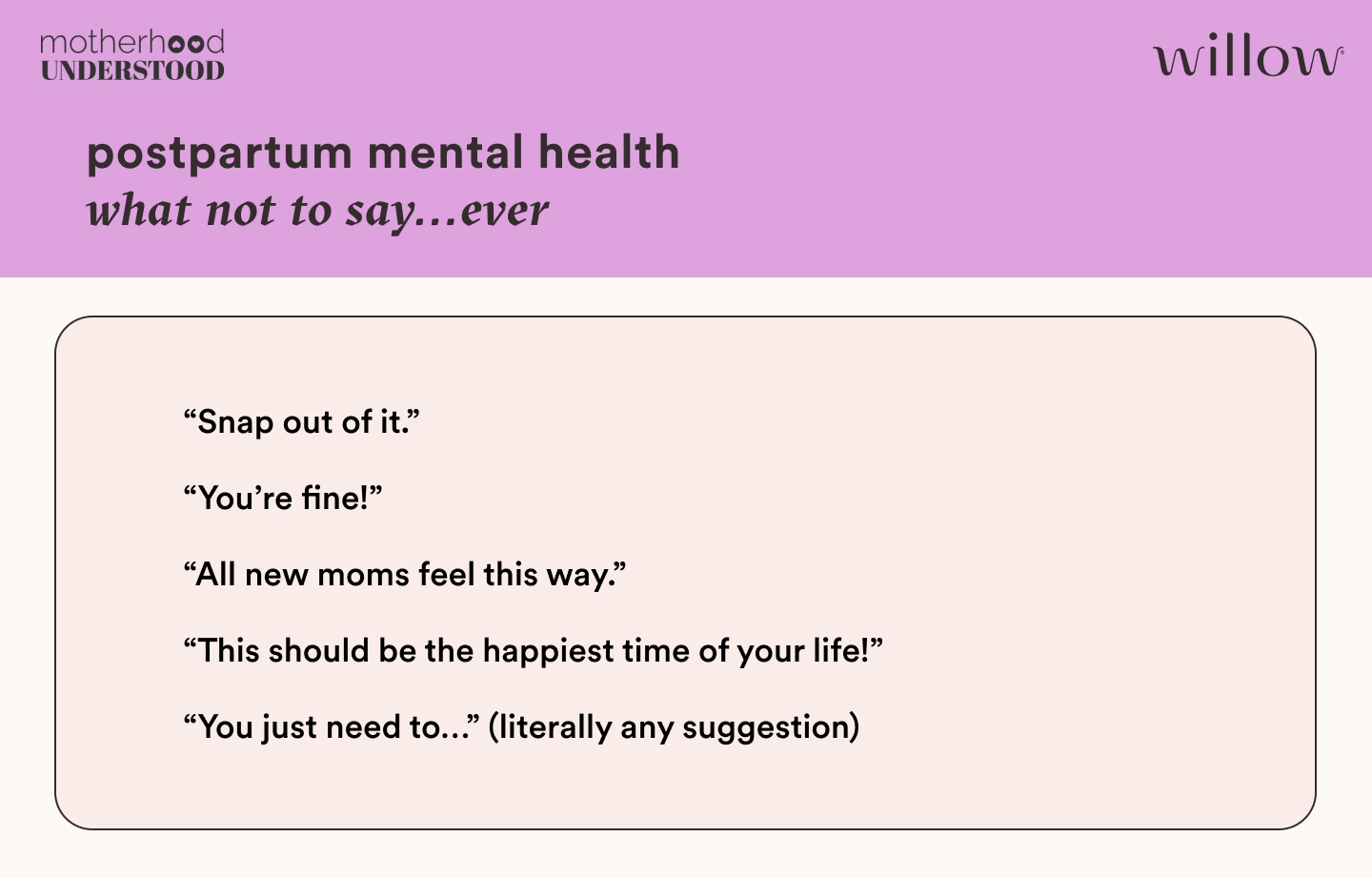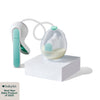Dear Partner,
This is about the hard stuff. The stuff that nobody likes to talk about, but we have to. So, here it goes…
Sometimes, mom might not feel joyful or excited about the arrival of your new baby. She might feel anxious, cry (a lot), and even snap at you or the baby. This isn’t “normal,” but it is common, and there are a few things you need to know to better support them. And that includes what NOT to say, literally, ever.
But we also want to say that we understand that it’s easy to feel helpless when your partner is struggling. You want to fix it. You want them to feel better. Please know that what they are going through is temporary and treatable. They just need some time, patience, support, and perhaps professional care.
So, how do you know how mom is really doing?
First, ask yourself:
-
How are her feelings affecting her ability to function day to day?
-
Is she able to take care of the baby? Herself?
-
Is she struggling to complete everyday tasks, like getting out of bed, taking a shower, eating, sleeping, and bonding with your baby?
-
Does she not want to take part in activities that used to bring her joy?
-
Is she avoiding socializing with friends or family?
Answering these questions is a good first step to gauge just how much mom is struggling mentally postpartum. Also, it’s important to be able to distinguish between a simple case of the “baby blues” and a more serious condition, like postpartum depression and/or anxiety, which require immediate professional attention.
Some things to know:

-
Up to 80% of moms will experience the baby blues, which typically last 1-2 weeks. The baby blues typically resolves itself with no need for medical intervention. In these instances, her ability to take care of her baby shouldn’t be impacted, and she might just be feeling down (although that totally sucks too).
-
If her feelings seem to be getting worse and are affecting her ability to take care of herself and/or her baby, or are getting in the way of everyday tasks, it’s time to consider looking into postpartum depression and anxiety.
-
Postpartum mental health conditions affect hundreds of thousands of women each year.
-
These conditions are very real, very serious, and can happen any time from pregnancy through the first year postpartum (and sometimes even past the first year).
-
They can happen to anyone, including women who have no prior history of mental illness.
-
She is not making it up, she will not get better on her own, and it’s not something she can just “snap out of” or “get over.”
-
It’s not her fault. It’s not your fault either, and it doesn’t mean either of you are bad parents.
-
Please don’t assume that just because she looks good, she’s fine. Don’t assume that just because she doesn’t “seem” depressed, she’s not. It’s very common for these illnesses to camouflage and present as normal anxiety, increased irritability, and/or rage.
What you can do:

-
Educate yourself about what she’s experiencing. (provide link to more info about maternal mental health illnesses)
-
Be open to hiring some help (if affordable), such as a postpartum doula, baby nurse, or part- or full-time nanny. Or, ask family members if they can pitch in with childcare responsibilities.
-
Help her find the right therapist, one trained in pregnancy and postpartum mental health.
-
Remind her this is a temporary, treatable illness, that she will recover, and that it doesn’t make her a bad mom.
-
Reassure her that you believe her and aren’t going anywhere. Let her know you love her and that she won’t always feel this way.
-
Support her choices to support her mental health (like deciding to stop breastfeeding, or deciding to take medication).
-
Be willing to take on more of the parenting load right now (changing diapers, bathing, feeding, middle of the night wake-ups).
-
Sit with her when she’s feeling bad.
-
Tell her that the baby is loved and will be okay.
-
Give her permission to do what she needs to take care of herself, and help her set boundaries to do so.
-
Take care of yourself too. Find an outlet: a partners group or a close, trusted friend to talk to about what this experience is like for you.
-
Check out the book The Postpartum Husband by maternal mental health psychologist and expert, Karen Kleiman, or similar resources.
What NOT to say… EVER:

-
“Snap out of it.”
-
“You’re not depressed.” (Remember, these illnesses involve a great deal of anxiety and agitation!)
-
“All new moms feel this way. It’s normal to feel this way.”
-
“I’m tired of you feeling this way.”
-
“You should be able to do what other moms do.”
-
“I don’t understand… You wanted a baby.”
-
“You’re fine.”
-
“You can get through this on your own.”
-
“This should be the happiest time of your life.” (She already likely feels guilty about the way that she feels)
-
“You just need to… talk to your friends, be around other moms, sign up for mommy and me classes…” (Being around friends and meeting other moms could actually increase her anxiety, exhaust her, and make her feel worse right now).
-
“If you would only… get your hair blown out, get your nails done, get out of the house more, exercise, get out in nature, drink more water… you would feel better.”
-
“How long will this last? When are you going to get better?”
Partners, we get that this isn’t what you expected either. Please have patience with her. She will get better with the proper care, but recovery could take weeks, even months.
Remind her you love her and that she won’t always feel this way. Tell her the baby is loved and will be fine.
Please help her find the right help and be part of her treatment. Make sure the doctor has experience with postpartum mood and anxiety disorders. It might cost more money to see the right medical professional, but it’s much better than jumping from one doctor to the next. It can also be helpful to attend a few therapy sessions with her to better understand what she’s feeling.
Give her permission to do what she needs to do to take care of herself. And remember to take care of you too.
Jen Schwartz is the founder and CEO of Motherhood Understood, the leading support community and story-sharing hub for women impacted by pregnancy and postpartum mental health issues. Jen is a thought-leader, consultant, speaker, and moderator in the maternal mental health space and has written prolifically on the subject for sites like Forbes, Healthline, The Mighty, Romper, Motherly, The Bump, Happiest Baby, Thrive Global, and more. Follow on Instagram to learn more about postpartum mental health issues.
Get nourished with Chiyo
Get nourished with Chiyo
Chiyo’s meal programs are specifically designed to meet moms where they are — whether that’s trying to conceive or postpartum. Use the code WILLOW30 to get $30 off your first order.























